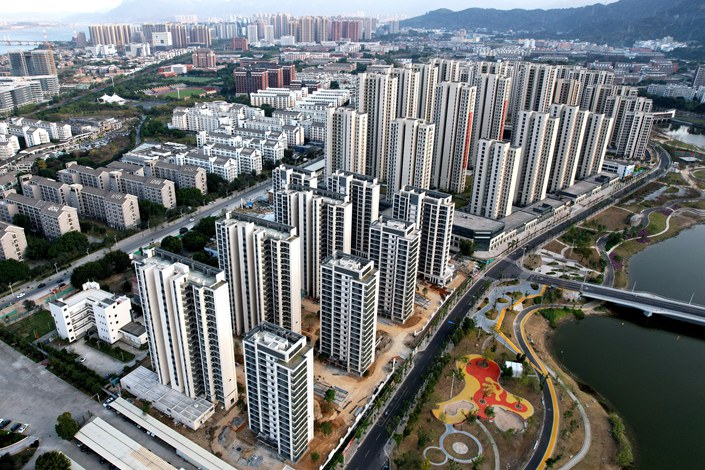
China’s real estate industry has been a crucial driver of economic growth in the past two decades. In order to ascertain what housing policy measures are needed to improve the sector, we first need to fully appreciate the role the property market plays in the economy.
In 2020, the real estate sector accounted for 7% of the country’s GDP. But that number does not take into account the sector’s impact on driving upstream and downstream industries such as construction materials, furniture, and finance. In 2018, these related sectors accounted for 9.9% of GDP. Hence, in a broad sense, the real estate industry drives around 17% of the country’s GDP.
The value of the sector is also evident in how it’s a major employer, store of wealth for households, and a source of income for local government coffers:
- In 2018, the industry employed more than 12 million people.
- In 2020, real estate development investment accounted for 27.3% of fixed-asset investment.
- Local governments in 2020 generated 37.6% of fiscal revenue through land sales and real estate taxes, totaling 8.4 trillion yuan ($122 billion) and 1.97 trillion yuan, respectively.
- A primary source of Chinese household wealth, the country’s housing values reached 418 trillion yuan in 2020.
- Real estate is also closely tied to the financial industry. The balance of property loans amounted to 50.8 trillion yuan in 2021, accounting for 27.4% of all outstanding loans.
Read more In Depth: China’s Patchy Property Revival
Given its significant role, here are some suggested measures for authorities to develop a sustainable framework for the real estate industry:
Firstly, frame reforms by considering the link between the number of new long-term residents and land supply, which means the larger new permanent population in a city, the higher land quotas should be allowed.
Secondly, maintain long-term stability in monetary policy and real estate financial policy. Stabilize the expectations of homebuyers and encourage healthy housing demand, while suppressing market speculation at the same time. The government should also regulate the use of financing by property developers and prevent excessive financing.
Thirdly, through financial tools such as merger and acquisition (M&A) loans and bonds, the government can support developers’ M&A and restructuring as a means for them to resolve risks.
Fourthly, continue to promote the pilot implementation of a new real estate tax. The tax can be an important and stable source of local government revenue.
Finally, speed up the rollout of a classification and evaluation system for real estate developers, and improve the early-risk warning system in the industry. For example, firms with a good financial standing should have their financing rights safeguarded, while those that have defaulted should disclose information properly and have their future financing put under scrutiny.
Ren Zeping is a Chinese economist.
This commentary was translated by Zizan Wang. It has been edited for length and clarity.
Contact editor Bertrand Teo (bertrandteo@caixin.com)
The views and opinions expressed in this opinion section are those of the authors and do not necessarily reflect the editorial positions of Caixin Media.
If you would like to write an opinion for Caixin Global, please send your ideas or finished opinions to our email: opinionen@caixin.com
Get our weekly free Must-Read newsletter.







